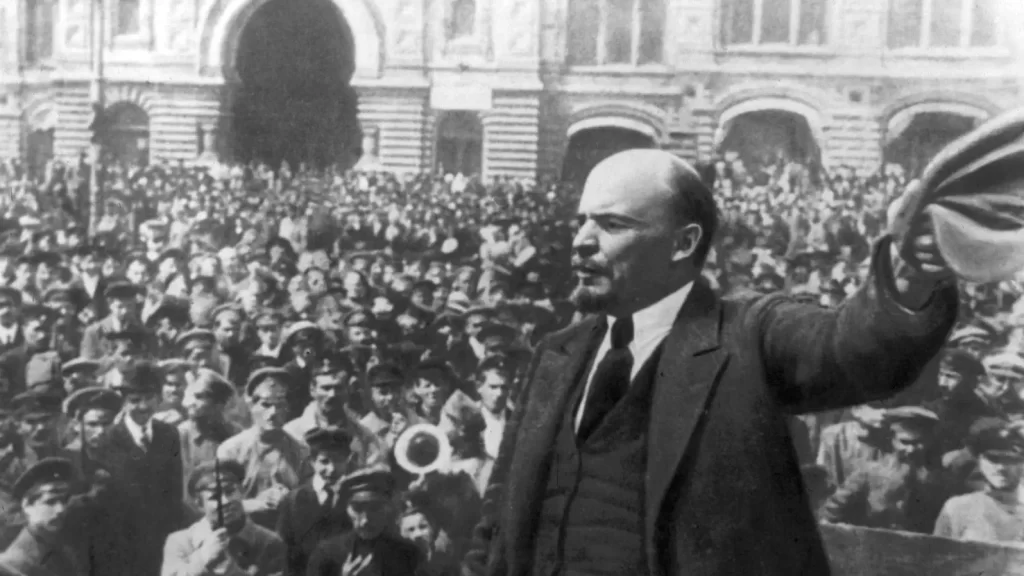
100 years ago, Vladimir Lenin died.
Lenin was an unlikely revolutionary. His story was not one of poor beginnings or social depravity. Rather, he came from a family whose fortunes had little to do with the proletariat he came to champion. He was well educated, attended university, and became a lawyer.
However, during his “education” he was exposed to Marxism and became radicalized, accepting its 19th century historical revisionist views. Putting facts aside, the lessons of history he accepted were those of class struggle. It was a conflict between the haves and have-nots, capitalism and socialism, and the end of history was a workers' paradise, with the ultimate conclusion that everyone is equal and has everything in common. His goal was to achieve that result.
Lenin's evil genius was to take Marxist doctrine and superimpose it on Mother Russia. Because, unlike more modern Western European countries, Russia has had no real history of governmental structures that balance power and allow citizens to participate in elections. Instead, Russian history depicts the government as a sole strongman, represented by people like Ivan the Terrible, Peter the Great, and a list of dictators who were absolute dictators in the most totalitarian sense. It was regarded as Enlightenment ideas about government, freedom of dissent, and freedom of conscience were seeds that never germinated on Russian soil.
While in other parts of the world Marx's ideas were disregarded because they conflicted with colloquial and cultural experience, in Russia they had a chance to succeed because of the different social structure. The country was primarily agricultural, its economy was largely unaffected by the Industrial Revolution, and its Orthodox religion had little sympathy for the lower classes. In other words, Russia was ripe for revolution.
Although the pre-Bolshevik tsars were not loved, they were at least tolerated and at times made attempts to liberalize Russia. Despite pogroms here and there, the lower classes of serfs had minimal comforts, the tax burden was bearable, and the government was far away.
The situation would change when Russia entered World War I.
As Russia mobilized for war, patriotic fervor swept the country, uniting everyone in what was expected to be a short and simple conflict. When the conflict did not end quickly, this nationalism retreated as support for the war depleted the population of both food and money. As military success dwindled and casualties mounted, the emperor was eventually forced to abdicate in favor of some sort of coalition government.
Unfortunately for the tsar, he believed the optimistic view of Russia's military power among senior military officials. He built all his fame on supporting the war effort, and when the economy faltered due to the stalemate, he took the easy way out and resigned easily.
Lenin now had his chance. He wanted the perfect storm of chaos, instability, and conflict, and now he got it. Without the tsar as the center of the state, Russia would have been ripe for a new leader, but Lenin would not have been anyone's first choice. He lived in exile in Switzerland and was not well known. As a writer of political pamphlets, his audience was limited to middle-class Russian radicals, but his interpretation of history that war was a tool of imperialists and capitalists caught the attention of German intelligence. .
In one of the most important expressions of the law of unintended consequences, Germany provided transportation and support for Lenin to enter Russia. Lenin's idea was that if he ended the war, Germany could focus its energies on defeating the Western Allies instead of being divided militarily on two fronts.
For Lenin, ending the war with Germany, though costly and consequential, would figuratively and literally stop the bleeding in Russia. Moreover, it would give him a basis to argue that his record of bringing peace deserves a leadership role in other efforts.
However, Lenin was in the minority equivalent of a coalition government, and despite his clear speech and charming personality, his ideas about Russia's future were not well received.
But minority status has never hindered the success of revolutionaries, much less communists. Status was status. Minority or not, it gave Lenin an aura of legitimacy and allowed him to gradually gain a foothold in taking control of the government.
Lenin used his limited power to gain influence, tighten his grip on authority, and put his plans into action. He understood that in a revolutionary situation the masses were most important, so he strove to gain acceptance not only from the army, but also from the lower classes. After all, he appealed to the serfs, ignoring both the middle class and the officer class, and enlisted men to support him.
He organized them into Soviet Unions or regional councils, which would have governing powers just like our counties and provinces. Initially, this power was used to nationalize all industries, confiscate land and create collectives for everyone. Equality was guaranteed because the state owned everything and workers shared the fruits of their collective labor.
But this didn't work. Not at all. Farmers and factory workers had experience in performing specific tasks, but they had neither the education nor the experience to govern or actually manage the needs of a large group. Things fell apart very quickly.
Dissent was met with brutal repression, and Lenin's control of the army made summary executions of dissenters easy. In an instant, Lenin's regime was no different from that of the Tsar. Even though different classes ruled with different theories of government justifying their actions, the final outcome of this country was the same – autocratic rule, brutal repression, and no accountability. The ruling elite.
Lenin's legacy was devastating for Russia, if not the world. He created an ideology that resulted in the deaths of tens of millions of people and oppressed the very people he sought to liberate.







